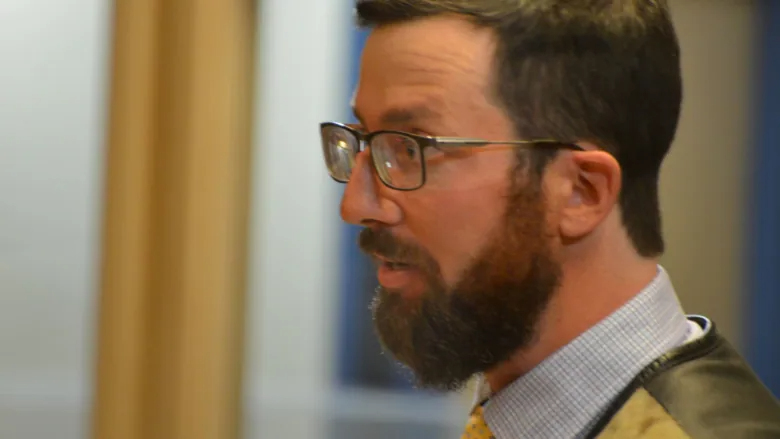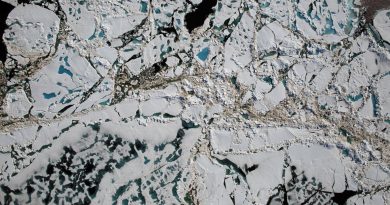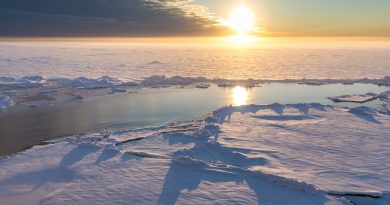Health minister in Nunavut, Canada asks residents to get vaccinated as details emerge on COVID-related death

Person in their 70s who died recently of COVID-19 was not fully vaccinated
A person in Nunavut who died recently due to COVID-19 complications was not fully vaccinated, says Chief Public Health Officer Dr. Michael Patterson.
Patterson said the person was in their 70s.
The information emerged during a live update Thursday by Patterson, Health Minister John Main, Premier P.J. Akeeagok and other government officials on the state of COVID-19 in the territory. However, CBC News lost connection to the feed before the press conference ended.
During the update, Main appealed to Nunavummiut to help bolster the territory’s vaccination numbers.
He said he is concerned too many Nunavut residents still aren’t fully vaccinated.
He asked friends and family of people who are not fully vaccinated to speak to them, listen to their concerns and help them access reliable information and appointments.
“I know opinions on vaccines can be strong, and it can be frustrating at times, but please don’t give up,” he said.
All Nunavummiut ages five and up can get vaccinated. Data on the territorial government’s website shows that as of Jan. 17, 90 per cent of Nunavut’s residents have received a first dose and 71 per cent have received a second dose.
Measures taken at Baker Lake’s schools
While schools in Nunavut are expected to reopen for in-person learning on Jan. 24, the schools in Baker Lake will only open at half capacity.
Patterson said Baker Lake has recorded a “significant increase” over the past week in the number of people who have COVID-19.
“Moving forward, we will continue to assess each community on a weekly basis, and when appropriate, capacity at schools will be lowered for one to two weeks,” he said.
Patterson also said that in order for schools to move to remote learning again, COVID-19 would need to be spreading through the school at a higher rate than the rest of the community.
Struggling to compete for nurses
Main couldn’t say how many nurses Nunavut needs to close the gap at all its health care centres, since that number fluctuates a lot.
But he said the staffing challenges the territory still faces is “significant.”
On Tuesday, the government announced Nunavut would be receiving three nurses from the federal government to help with its staff shortage.
Main said Thursday that the territory is still negotiating the collective agreement with the Nunavut Employee Union, which nurses are part of. Providing nationally competitive salaries and benefits is still a “work in progress,” he said.
“Nurses are in high demand across the country, especially in response to COVID-19,” he said.
Funding announced for hunters and trappers
Premier P.J. Akeeagok announced during the press conference that the territory would be providing $25,000 to each of Nunavut’s Hunters and Trappers Organizations (HTOs), for a total of $625,000, to help harvesters feed Nunavut’s communities while the pandemic continues.
The money can go toward organizing community hunts, for example, or purchasing caribou meat from other communities.
David Akeeagok, Nunavut’s minister of environment, said the parameters of that funding are flexible depending on what the community wants to use it for.
“All we ask the HTOs is they distribute the country food within the communities,” he said.
Latest COVID-19 data
Premier P.J. Akeeagok said there are now 175 active cases of COVID-19 in Nunavut.
That includes 35 cases each in Arviat and Baker Lake, 16 in Cambridge Bay, one in Chesterfield Inlet, four in Coral Harbour, 16 in Iqaluit, one in Gjoa Haven, 14 in Kinngait, 12 in Naujaat, one in Qikiqtarjuaq, 17 in Rankin Inlet, four in Sanirijak, 11 in Sanikiluaq, five in Taloyoak and three in Whale Cove.
There are no longer any cases in Igloolik, Kugaaruk, Pangnirtung and Pond Inlet.
Patterson said the number of hospitalizations in Nunavut remains at 10. He couldn’t say whether anyone is still in hospital with COVID-19.
Related stories from around the North:
Canada: All communities in Nunavik, Quebec moved to COVID-19 red alert level, Eye on the Arctic
Greenland: COVID-19 has entered a “new phase” in Greenland, government says, Eye on the Arctic
Sweden: Swedish government announces new restrictions following sharp rise in COVID-19 cases, Radio Sweden



